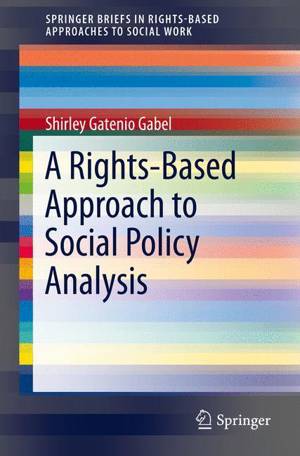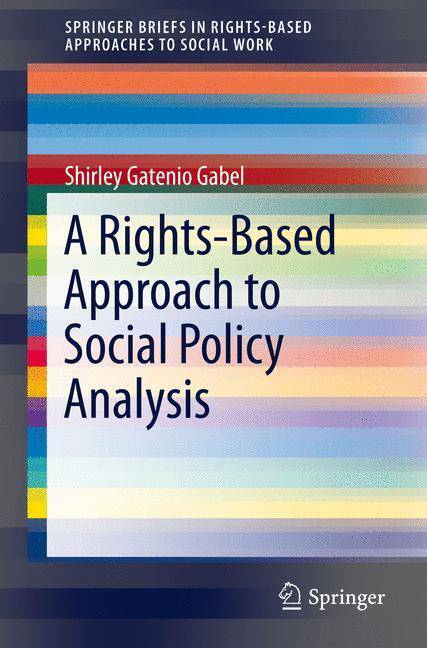
- Retrait gratuit dans votre magasin Club
- 7.000.000 titres dans notre catalogue
- Payer en toute sécurité
- Toujours un magasin près de chez vous
- Retrait gratuit dans votre magasin Club
- 7.000.0000 titres dans notre catalogue
- Payer en toute sécurité
- Toujours un magasin près de chez vous
Description
This brief resource sets out a rights-based framework for policy analysis that allows social workers to enhance their long-term vision as well as their current practice. It introduces the emerging P.A.N.E. (Participation, Accountability, Non-discrimination, Equity) model for evaluating social policy, comparing it with the traditional needs-based charity model in terms of not only effectiveness and efficiency but also inclusion and justice. Recognized standards for human rights are used to identify values crucial to informing policy goals. Exercises, key documents, and an extended example illustrate both the processes of creating empowering social policy and its best and most meaningful outcomes.
Included in the coverage:
- Rights-based and needs-based approaches to social policy analysis. Regional and international human rights instruments.
- Grounding social policies in legal and institutional frameworks.
- Conceptualizing social issues from a human rights frame.
- Measuring progress on the realization of human rights.
- Rights-based analysis of maternity, paternity, and parental leaves in the United States.
Spécifications
Parties prenantes
- Auteur(s) :
- Editeur:
Contenu
- Nombre de pages :
- 85
- Langue:
- Anglais
- Collection :
Caractéristiques
- EAN:
- 9783319244105
- Date de parution :
- 05-04-16
- Format:
- Livre broché
- Format numérique:
- Trade paperback (VS)
- Dimensions :
- 156 mm x 234 mm
- Poids :
- 163 g

Les avis
Nous publions uniquement les avis qui respectent les conditions requises. Consultez nos conditions pour les avis.






